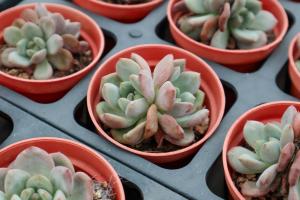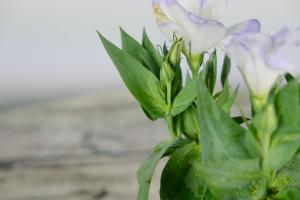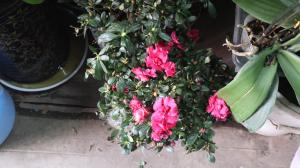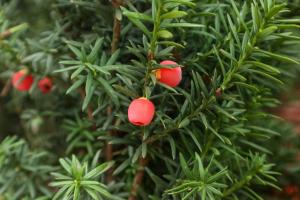Can I Plant Succulent in Pot without Drainage?
Succulents are becoming a trend for plant enthusiasts due to their distinct shapes, vibrant colors, and low maintenance care. It's no surprise that many people have started to incorporate them into their homes and gardens. However, one question that frequently arises is whether succulents can be planted in pots without drainage holes. Let's explore the possibilities and risks of planting succulents without drainage.
The Importance of Drainage for Succulents
Succulents need well-draining soil and a pot with drainage holes to prevent root rot. Excess moisture causes the roots to become mushy, and the plant will eventually die. Succulents are native to arid environments, where water is scarce, and they've evolved to store water in their leaves, stems, and roots to survive during dry spells. Therefore, succulents prefer a soil mix that allows water to run through quickly, leaving enough space for air to circulate around the roots.
Challenges of Planting Succulents in Pots without Drainage
Planting succulents in pots without drainage holes can be challenging, but it's not impossible. The main issue is ensuring that the soil doesn't become waterlogged and cause root rot. One workaround is to create a false bottom in the pot to prevent water from accumulating. You can do this by placing a layer of gravel or pebbles at the bottom of the pot, followed by a layer of activated charcoal. This will help filter the water and prevent it from sitting at the bottom. However, this method is not foolproof, and excess water can still build up if you overwater your plants or when it rains heavily.
Steps to Plant Succulents in Pots Without Drainage
If you still want to try planting succulents in pots without drainage holes, here's how you can do it:
Find a pot that's deep enough for the roots and wide enough for growth.
Add a layer of gravel or pebbles at the bottom of the pot.
Add a layer of activated charcoal on top of the gravel. This will help absorb extra moisture and prevent bacterial build-up.
Add a layer of succulent soil mix on top of the charcoal. Succulent soil mix consists of sand, perlite, and peat moss. You can also make your own soil mix by mixing three parts of potting soil, two parts of coarse sand, and one part of perlite.
Plant the succulent in the soil mix and add more soil around it until it's secure.
Water the succulent sparingly, only when the soil is completely dry. Be careful not to overwater it.
Conclusion
Succulents are versatile plants that can thrive in different environments. However, they require well-draining soil and a pot with drainage holes to prevent root rot. Planting succulents in pots without drainage holes can be challenging, but it's possible with the right materials and care. Follow the steps above to plant your succulents in a pot without drainage holes, but be aware of the risks involved. If you're not confident, it's best to stick to pots with drainage holes to ensure the health and longevity of your succulents.

 how many times do yo...
how many times do yo... how many planted tre...
how many planted tre... how many pine trees ...
how many pine trees ... how many pecan trees...
how many pecan trees... how many plants comp...
how many plants comp... how many plants can ...
how many plants can ... how many plants and ...
how many plants and ... how many pepper plan...
how many pepper plan...































